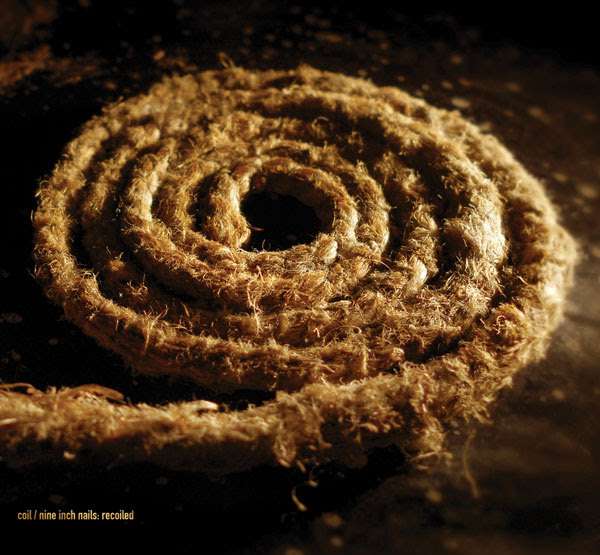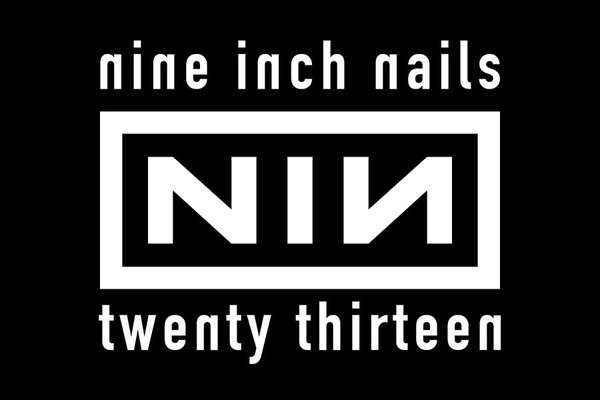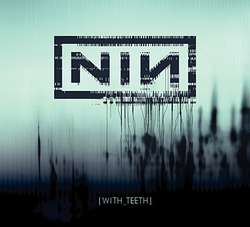My first ever disclaimer:
I like Nine Inch Nails. I thought the little 'Art is Resistance' campaign made for Year Zero (the best album of 2007!) was the most entertaining thing ever. I assault people who mention to me, just in case I hadn't heard about it, that Nine Inch Nails actually covered a Johnny Cash song (although, they must say, the original is better). I've even been quoted as saying 'I don't know guys, I think With Teeth is pretty good.'
I won't front. I'm a Trent Reznor fanboy.
As such, I find it awesome that sober Reznor has cranked out three albums (sixty-two tracks) in a little over a year. Upon hearing news of a new Nine Inch Nails release, my posture becomes straighter and more respectable. More of my prayers are answered and I become a more productive, less bitter worker. I begin to find the formalities of society less abrasive and seem less suspicious to the people around me. Keep it up, Trent.
I can guarantee you that none of the previously mentioned phenomena will prevent me from giving an unbiased review. Not. But I will use restraint.
The Slip, the second Nine Inch Nails release to be released under a Creative Commons license, is a fairly balanced assembly of past Nine Inch Nails trends, lyrically and musically. While Year Zero showed an almost complete departure from Trent's personal, self-focused lyrics, instead directing his angst towards society, The Slip turns back inward slightly, although it still largely seems like an extension of the Year Zero themes. The preoccupation with evildoing leaders and their complacent constituencies is still here, but more often the lyrics seem to revolve around the personal frustration and confusion of feeling paralyzed within this system.
Though the lyrics only show a reversion of a few years, the music itself reaches back to the early nineties, adding a hint of the Broken fury. Broken is arguably Nine Inch Nails' most fierce material to this day, and The Slip doesn't really come close to that, but it does have a distinctly punk sound at times. "1,000,000" is one of those times. A clean, steady drumbeat and simplistic arrangement from either a synth or heavily distorted guitar (it's difficult to tell) gives the verse a stripped down punk rock sound atypical for Nine Inch Nails. The vocal arrangements on this song kind of remind me of "The Hand that Feeds," although, unlike that song, Reznor fails to repeat himself 1,000 times at any point.
The album as a whole doesn't match the intensity of Broken, but "Letting You" probably does. Unlike "1,000,000," the drums are electronic and pummeling as the track opens. When Reznor's voice surfaces, a burst of fuzz yields a raging, overdriven-synth that gives the track a dire and urgent tone. The anger and energy in the instrumentation mirrors Reznor's lyrics, which express disbelief at how Americans have gullibly eaten up the absurd crap fed to them by their corporate government, how those leaders have cashed in on our stupidity while mortally wounding our future in the process.
The cancer takes ahold / The wolf is in the fold / Our destiny's been sold / We do just what we're told / And
we're letting you get away with it.
"Discipline," the album's single, is almost jovial on a sonic level. Despite lyrics about being helpless over one's self-control, the music is catchy and the vocals are friendly. If you ask me, it might actually be Nine Inch Nails' most accessible track yet. "Head Down" isn't far behind in this regard, though. The synth groove in this song is sick, and although Reznor displays an impressively catchy vocal arrangement, that doesn't stop him from unleashing the noise. This track does a great job of tip-toeing the line between safety and danger.
"Demon Seed" might be the album's most interesting track. The electric drumming is so shifty it's almost ghastly, everywhere and nowhere at the same time. The whispered verses and low-end synth give a restrained overall sound. The lyrics seem to be expressing confusion and fear as the primal nature buried within our conditioned exteriors makes itself evident.
It keeps growing /And I can feel it breathe /I have been trying /To behave myself/It keeps growing /And I can feel it breathe.
While Trent comes to terms with his inability to behave himself, the volume picks up and the instrumentation becomes more varied until the album abruptly stops.
The Slip is a bit short by Nine Inch Nails standards, but this album is full of highlights, and it flows better than any Nine Inch Nails album since The Downward Spiral. All of the songs are solid, and "Corona Radiata" is one of the band's best instrumentals yet. There really are no signs of weakness on here. Despite my opinion on that, it seems like every Nine Inch Nails release invariably fails to please as many people as I think it should, so you might want to take my word with a bit of skepticism.
Still, I'll go ahead and say that The Slip has to be one of the ten best albums of the year so far.





